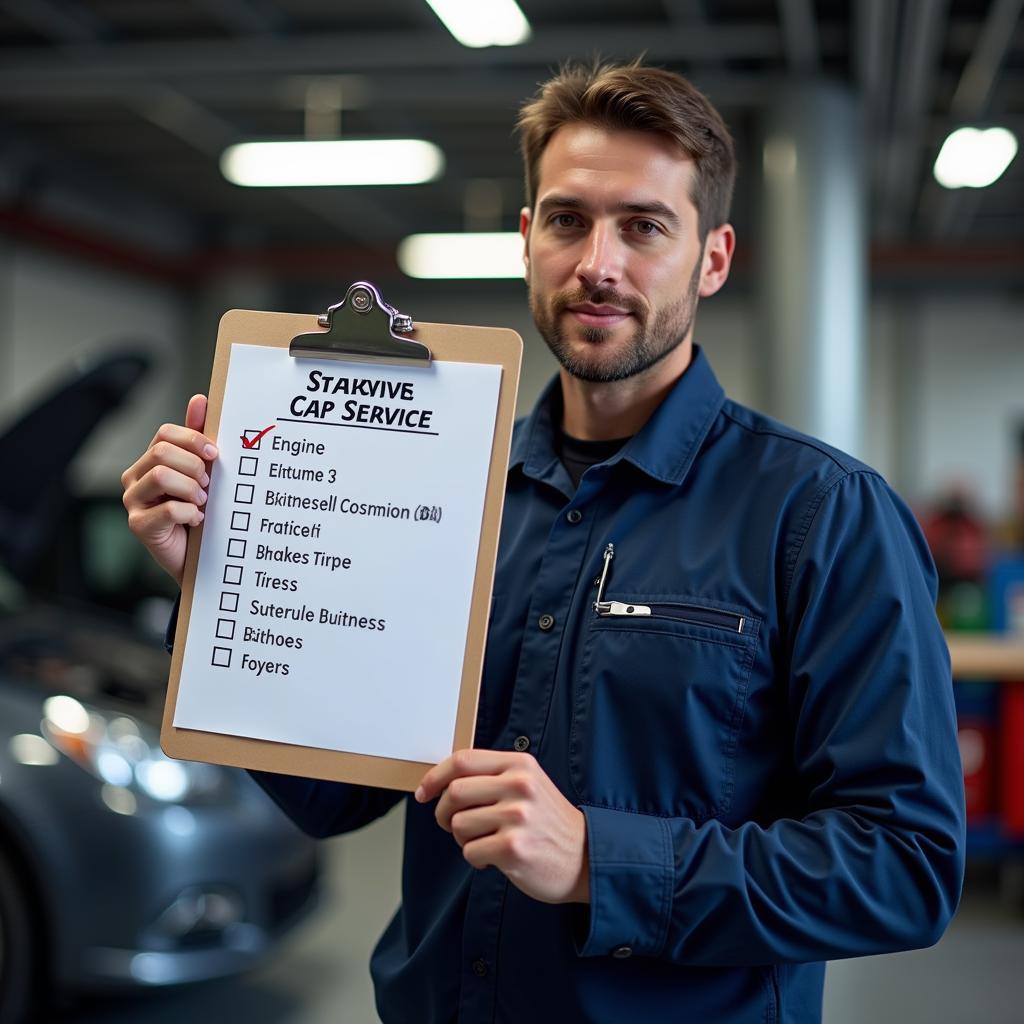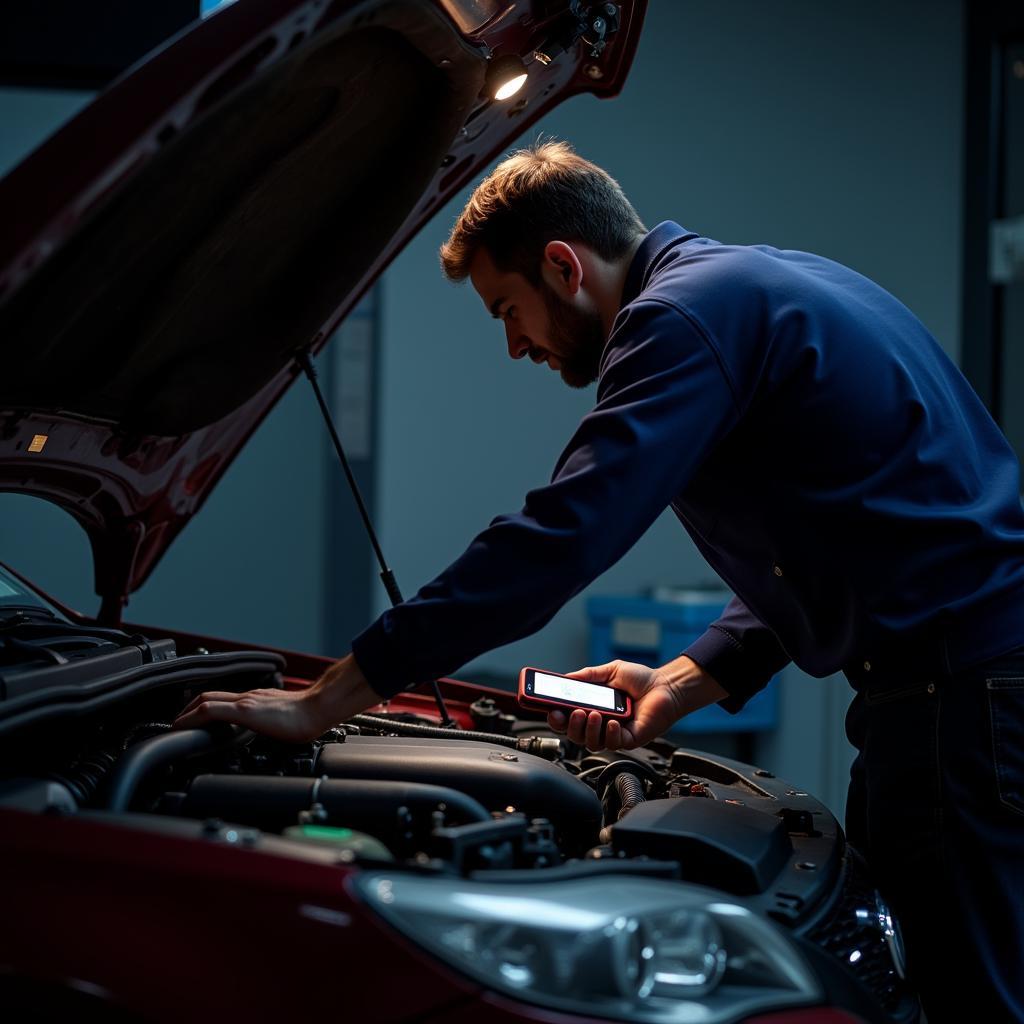What Things Are Done in a Car Service?
When it comes to keeping your car running smoothly and safely, regular servicing is essential. But what exactly happens during a car service? This comprehensive guide will walk you through the standard procedures, demystify the jargon, and equip you with the knowledge to make informed decisions about your car’s maintenance.
Understanding Car Service Essentials
A car service isn’t just a quick oil change. It’s a comprehensive check-up designed to identify and address potential issues before they escalate into major problems. Think of it as preventative healthcare for your vehicle.
What to Expect During a Standard Car Service
A standard car service typically includes a range of checks and replacements, focusing on key areas like:
-
Engine Oil & Filter Change: This is the cornerstone of any car service. Fresh oil lubricates moving engine parts, reducing friction, heat, and wear. The filter traps dirt and debris, ensuring optimal oil flow.
-
Fluid Level Inspections & Top-Ups: Your car relies on various fluids like coolant, brake fluid, power steering fluid, and transmission fluid. Mechanics will check their levels and top them up as needed.
-
Brake Inspection: Your safety depends on your brakes. Mechanics will visually inspect brake pads, discs, and lines for wear and tear, ensuring they function correctly.
-
Tire Pressure & Condition Check: Properly inflated tires are crucial for fuel efficiency, handling, and safety. Technicians will inflate them to the recommended pressure and inspect them for damage or uneven wear.
-
Battery Test: A weak battery can leave you stranded. Mechanics will test its charge and overall health, advising on replacement if necessary.
 Car Service Checklist
Car Service Checklist
Beyond the Basics: Additional Checks and Services
While the elements mentioned above form the core of a standard service, many others might be included or offered as optional extras depending on your car’s make, model, mileage, and service history:
-
Air Filter Replacement: A clogged air filter restricts airflow to the engine, impacting performance and fuel economy.
-
Spark Plug Replacement: Spark plugs ignite the air-fuel mixture in the engine cylinders. Worn-out spark plugs can lead to misfires, reduced power, and increased emissions.
-
Cabin Air Filter Replacement: This filter cleans the air entering your car’s cabin, removing dust, pollen, and other allergens.
-
Fuel System Cleaning: Over time, deposits can build up in the fuel injectors and lines, hindering performance. Cleaning the fuel system can improve efficiency and reduce emissions.
-
Coolant Flush: Coolant prevents your engine from overheating. Over time, it can degrade, so a flush and refill with fresh coolant are recommended periodically.
 Mechanic Inspecting Car Engine
Mechanic Inspecting Car Engine
The Importance of Regular Car Servicing
Regular car servicing is an investment, not an expense. Here’s why:
Safety First: A well-maintained car is a safer car. Regular checks ensure your brakes, tires, steering, and other crucial safety systems are in top condition.
Prevent Costly Repairs: Detecting and addressing minor issues early can prevent them from developing into major, expensive problems down the line.
Maintain Vehicle Value: A car with a comprehensive service history is more attractive to potential buyers, commanding a higher resale value.
Boost Fuel Efficiency: A well-tuned engine with clean filters and fresh fluids operates more efficiently, saving you money on fuel costs.
Navigating the World of Car Services
-
Manufacturer’s Recommendations: Consult your car’s owner’s manual for the recommended service intervals and procedures specific to your make and model.
-
Choosing a Service Provider: You can opt for a dealership, an independent garage, or a specialist service center. Consider factors like reputation, expertise, and cost when making your choice.
-
Understanding Service Levels: Different service levels offer varying degrees of comprehensiveness. Discuss your needs and budget with your chosen provider to select the most appropriate option.
Conclusion
Understanding What Things Are Done In A Car Service empowers you to make informed decisions about your vehicle’s maintenance. By prioritizing regular servicing, you not only extend the lifespan of your car but also ensure a safer and more enjoyable driving experience. Remember, a well-maintained car is a happy car—and a happy car makes for a happy driver!
FAQs About Car Services
Q: How often should I service my car?
A: Refer to your car’s owner’s manual for specific recommendations. Generally, most manufacturers suggest servicing every 6,000 – 12,000 miles or every 6 – 12 months, whichever comes first.
Q: What’s the difference between a major and a minor service?
A: A minor service typically covers essential checks and replacements like oil and filter changes, fluid top-ups, and visual inspections. A major service is more comprehensive, often including additional checks, replacements, and adjustments based on mileage and wear.
Q: Can I service my own car?
A: While some basic maintenance tasks like checking tire pressure or changing wiper blades can be done at home, it’s generally recommended to leave more complex procedures to qualified mechanics.
Q: How much does a car service cost?
A: The cost varies depending on factors like your car’s make and model, the service level, the chosen provider, and your location.
Q: What if I don’t service my car regularly?
A: Neglecting regular servicing can lead to reduced performance, increased fuel consumption, more expensive repairs down the line, and potentially compromise your safety.
Do You Need Car Buying Advice?
For more helpful articles and information about car buying services, check out our other resources:
- Do car buying services save money?
- What is a car buying service?
- Is Costco and USAA car buying service the same?
- Does USAA have a car buying service?
- How to negotiate with car dealer service
Get in touch with our 24/7 support team via WhatsApp: +1(641)206-8880 or Email: [email protected] for any assistance.
